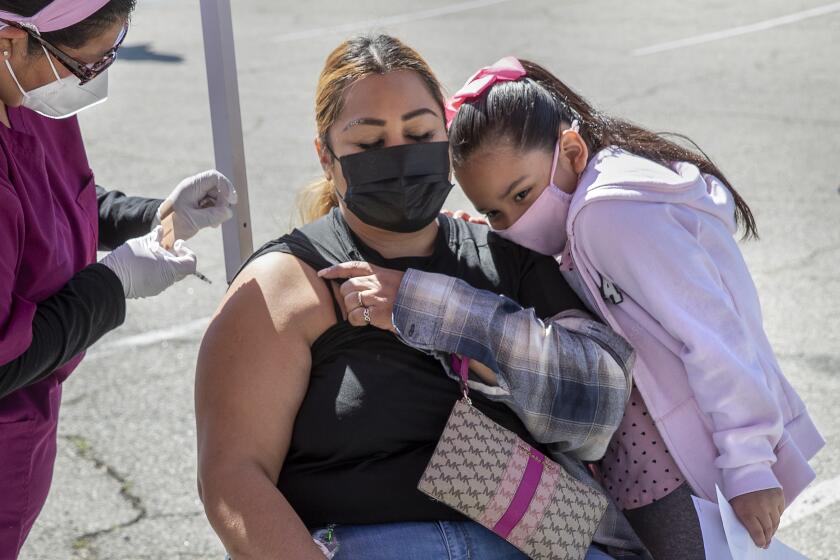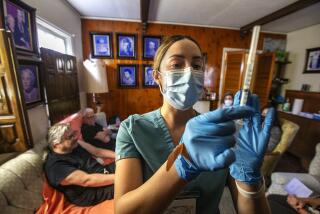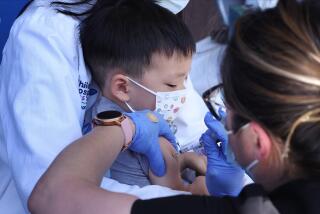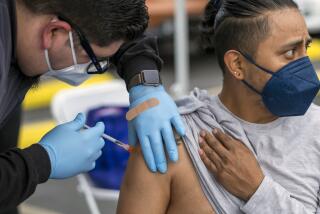A shot in the arm in the vaccine race: California administers 10 million COVID-19 doses
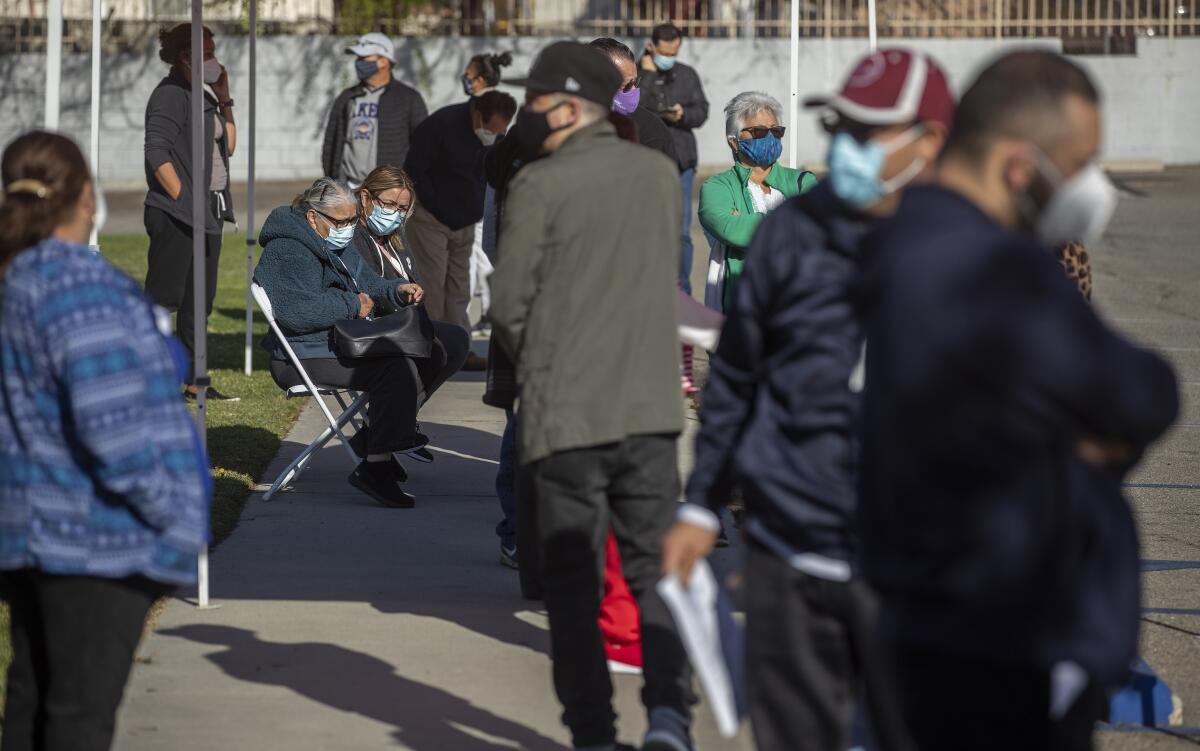
After a year marked by grim milestones, California has cleared a hopeful hurdle in its fight against COVID-19: administering its 10 millionth vaccine dose.
Officials confirmed Friday that the state had crossed the threshold, buoyed by a single-day record in terms of inoculations, with 330,155 shots dispensed.
Over the last week, providers throughout California have administered a little more than 251,000 doses per day — the highest rolling average yet, according to data compiled by The Times.
Nearly 77% of the 13.1 million COVID-19 vaccine doses delivered to local public health departments and medical providers statewide have been given out.
“The light at the end of the tunnel keeps getting brighter and brighter,” Gov. Gavin Newsom tweeted Friday.
Roughly 6.64 million Californians — or 21% of those who are at least 16 years old — have now received at least one vaccine shot, according to the state Department of Public Health.
More than 3 million Californians have received both required doses of either the Pfizer-BioNTech or Moderna vaccines. That accounts for about 10% of the 16-and-older population.
Among those who are fully vaccinated are nearly 1.5 million people who are 65 and older, which is roughly 23% of the state’s senior population.
Despite meeting the 10-million dose milestone, officials throughout the state say they continue to be hampered by a limited supply of vaccines, which hindered the state’s initial goal to administer more than 12.5 million doses by the end of February.
Newsom said this week that the state is working to design a system that can deliver 4 million vaccines a week. However, next week, California is slated to receive only about 1.62 million doses.
The only constraint, the governor said Thursday, “is manufactured supply.”
State officials at a vaccine advisory committee meeting Friday said the hope is that allocations will increase in the long run. Shipments are expected to grow in the months ahead, and the rollout of the Johnson & Johnson single-dose vaccine will also augment supplies.
But in the short term, vaccines will remain scarce as more second doses are reserved while a growing number of people vie to get their initial shots as eligibility expands.
Single-use access codes will be used to secure COVID-19 vaccine appointments, to help ensure the shots get to those in need.
Significant changes are also on tap for California’s vaccination strategy.
This week, officials announced that the state will now send 40% of its vaccine supply to underserved communities. Specifically, that allotment will be earmarked for the lowest 25% of the census tracts ranked in the California Healthy Places Index — a measure of socioeconomic opportunity that takes into account economic, social, education, housing and transportation factors.
The state also will begin to make vaccine available to people with underlying health conditions on March 15.
Currently, the vaccine is available to those who are 65 or older, are residents of long-term care facilities such as nursing homes, or who work in education and child care, food and agriculture, healthcare, law enforcement or emergency services.
More to Read
Sign up for Essential California
The most important California stories and recommendations in your inbox every morning.
You may occasionally receive promotional content from the Los Angeles Times.
